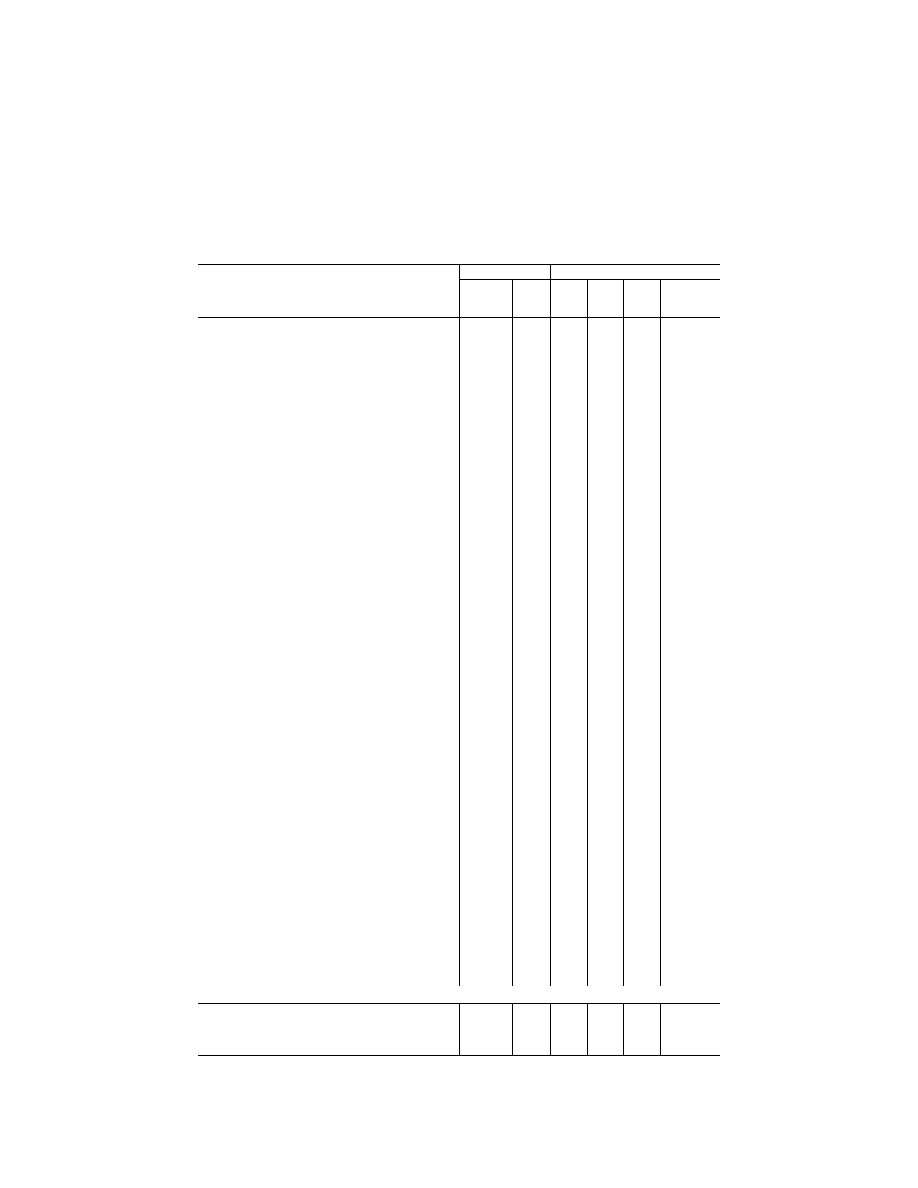
289
Federal Aviation Administration, DOT
Pt. 121, App. F
Maneuvers/Procedures
Required Permitted
Simulated
instrument
conditions
Inflight
Visual
simu-
lator
Non-
visual
simu-
lator
Training
device
Waiver
provisions of
§ 121.441(d)
Except for flight checks required by § 121.424(d)(1)(ii), an ap-
proved pictorial means that realistically portrays the location
and detail of preflight inspection items and provides for the
portrayal of abnormal conditions may be substituted for the
preflight inspection. If a flight engineer is a required flight
crewmember for the particular type airplane, the visual in-
spection may be waived under § 121.441(d)
(c)(1) Taxiing. Before March 12, 2019, this maneuver in-
cludes taxiing (in the case of a second in command pro-
ficiency check to the extent practical from the second in
command crew position), sailing, or docking procedures
in compliance with instructions issued by the appropriate
traffic control authority or by the person conducting the
checks ...............................................................................
.................
B ..........
..........
..........
(c)(2) Taxiing. Beginning March 12, 2019, this maneuver
includes the following: (i) Taxiing (in the case of a sec-
ond in command proficiency check to the extent prac-
tical from the second in command crew position), sail-
ing, or docking procedures in compliance with instruc-
tions issued by the appropriate traffic control authority or
by the person conducting the checks. (ii) Use of airport
diagram (surface movement chart). (iii) Obtaining appro-
priate clearance before crossing or entering active run-
ways. (iv) Observation of all surface movement guid-
ance control markings and lighting ..................................
.................
B ..........
..........
..........
(d)(1) Power-plant checks. As appropriate to the airplane
type ...................................................................................
.................
...........
..........
B
..........
......................
(d)(2) Beginning March 12, 2019, pre-takeoff procedures
that include power-plant checks, receipt of takeoff clear-
ance and confirmation of aircraft location, and FMS
entry (if appropriate), for departure runway prior to
crossing hold short line for takeoff ...................................
.................
...........
B ..........
..........
II. Takeoff:
(a) Normal. One normal takeoff which, for the purpose of
this maneuver, begins when the airplane is taxied into
position on the runway to be used ...................................
.................
B* ..........
..........
..........
......................
(b) Instrument. One takeoff with instrument conditions sim-
ulated at or before reaching an altitude of 100
′
above
the airport elevation ..........................................................
B ...........
B* ..........
..........
......................
(c)(1) Crosswind. Before March 12, 2019, one crosswind
takeoff, if practicable, under the existing meteorological,
airport, and traffic conditions ............................................
.................
B * ..........
..........
..........
(c)(2) Beginning March 12, 2019, one crosswind takeoff
with gusts, if practicable, under the existing meteorolog-
ical, airport, and traffic conditions ....................................
.................
B * ..........
..........
..........
#(d) Powerplant failure. One takeoff with a simulated fail-
ure of the most critical powerplant— ...............................
.................
...........
B ..........
..........
......................
(1) At a point after
V
1
and before
V
2
that in the judg-
ment of the person conducting the check is appro-
priate to the airplane type under the prevailing con-
ditions; .......................................................................
.................
...........
..........
..........
..........
......................
(2) At a point as close as possible after
V
1
when
V
1
and
V
2
or
V
1
and
V
r
are identical; or ........................
.................
...........
..........
..........
..........
......................
(3) At the appropriate speed for non-transport cat-
egory airplanes ..........................................................
.................
...........
..........
..........
..........
......................
In an airplane group with aft fuselage-mounted engines this
maneuver may be performed in a non-visual simulator
.................
...........
..........
..........
..........
......................
(e) Rejected. A rejected takeoff may be performed in an air-
plane during a normal takeoff run after reaching a reason-
able speed determined by giving due consideration to air-
craft characteristics, runway length, surface conditions, wind
direction and velocity, brake heat energy, and any other per-
tinent factors that may adversely affect safety or the airplane
.................
...........
..........
B* ..........
B
III. Instrument procedures:
(a) Area departure and area arrival. During each of these ma-
neuvers the applicant must— ..................................................
B
----
----
B
----
B*
(1) Adhere to actual or simulated ATC clearances (including
assigned radials); and .............................................................
----
----
----
----
----
----
VerDate Sep<11>2014
08:20 May 17, 2019
Jkt 247048
PO 00000
Frm 00299
Fmt 8010
Sfmt 8002
Y:\SGML\247048.XXX
247048